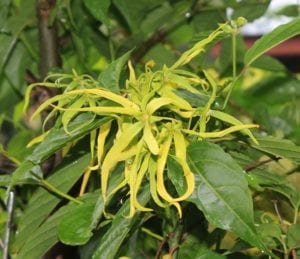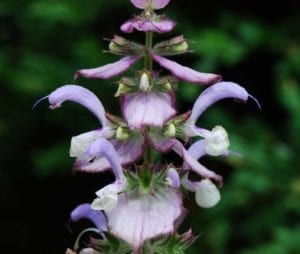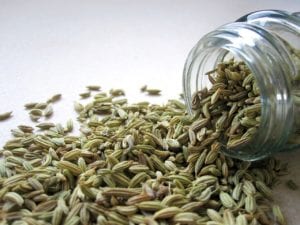Looking to ignite passion and enhance intimacy? Lost enjoyment in sex or struggling with that elusive and mystical (some would say mythical) libido? No worries, essential oils may be just what the libido ordered. Throughout history, essential oils have been used to encourage cuddling, affection, and intimacy. This blog intends to explore ten oils that can enhance the passion in your bedroom and life.
Known as the sex drive, libido influences a person’s overall desire for sexual activity. Libido is regulated by a complex interaction between hormones and neurotransmitters (chemical communicators of the brain like dopamine, serotonin, acetylcholine, GABA) released by the brain—specifically the limbic system and amygdala. Dopamine regulates desire, acetylcholine initiates arousal, GABA is necessary for orgasm, and serotonin is the final phase of libido called resolution.
To say that libido is all in your head is mostly accurate. Neurotransmitters released by the brain do the heavy lifting, governing a healthy libido. Estrogen is the primary hormone driving libido in women during the most fertile days. In menstruating females, libido peaks just prior to ovulation—a built-in motivation that encourages sexual intercourse during the most fertile days of the cycle and ensures the survival of the human race.

The male libido resides in the cerebral cortex and limbic areas of the brain and is fueled by neurotransmitters and testosterone. When a male becomes aroused, signals are sent from the cerebral cortex along nerves that elevate heart rate and increase blood flow to the genitals. Just like women, testosterone production changes over the course of a man’s lifetime. It usually peaks in his late teens and slowly declines thereafter. As a man ages, neurotransmitter, hormonal, and vascular changes make greater physical stimulation required to maintain sexual function and pleasure.
Keep in mind that although hormones and brain chemicals regulate libido, it is significantly influenced by emotions and stress levels. For example, you may be showering with the love of your life and feel desire, but arousal only occurs if you feel emotionally balanced and have stress under control. This may be why essential oils are so well-equipped to influence libido—because they profoundly influence mood and emotions by interacting with the same areas of the brain that regulate libido.

Sandalwood is employed as a potent aphrodisiac in India. It too is calming to the mind and combats the negative emotions and stress that can interfere with intimacy. Interestingly, sandalwood reportedly smells similar to androsterone (a metabolite of testosterone and dihydrotestosterone), which may trigger subtle sensual signals to the opposite sex. How to use: Diffuse 7 to 10 drops in your diffuser 15 minutes prior to and during intimacy; or dilute and apply 1 drop to the side of the neck.
Patchouli essential oil is used in aromatherapy to reduce tension, stress, and anxiety. It has been used traditionally in Asian cultures as an aphrodisiac. Some experts believe that patchouli stimulates the sex glands to increase both libido and sexual responses. How to use: Diffuse 5 drops in your diffuser 15 minutes prior to and during intimacy, or dilute and apply to the lower abdomen.

With an earthy aroma, vetiver essential oil is used in the traditions of Ayurveda to increase libido. It positively influences genes associated with both male and female hormone function. Its calming aroma reduces stress, which is vital for sexual health and enjoyment. Moreover, vetiver is known to increase GABA levels in the brain, which may enhance orgasm. How to use: Take 2 to 3 drops in a capsule daily.
Prized for its balancing effects to mood and uplifting aroma, bergamot is known to support optimal levels of acetylcholine in the brain. Optimal acetylcholine levels lead to enhanced sexual arousal. In addition, bergamot positively influences genes related to male and female hormone function. With less stress, improved mood, and optimum acetylcholine and hormone function, you can’t go wrong with bergamot during intimacy. How to use: Diffuse 7-10 in your diffuser 15 minutes prior to and during intimacy, or take 2 to 3 drops in a capsule daily.
Neroli essential oil is a great option for menopausal women according to clinical research. Women who inhaled a 0.5% dilution of neroli oil experienced improved sexual desire, quality of life, estrogen levels, cortisol levels, and menopausal symptoms. It has an alluring aroma that triggers desire in men and women both. How to use: Diffuse 5 drops in your diffuser 15 minutes prior to and during intimacy, or dilute and massage to the shoulders.
More than just a food spice, nutmeg essential oil is known for its psychoactive properties, including stress management and reduction of anxiety. It has also been traditionally used as an aphrodisiac and to improve sexual function. How to use: Diffuse 3 to 5 drops in your diffuser 15 minutes prior to and during intimacy.

Several reports from women suggest that peppermint oil enhances sexual experience and orgasm. Peppermint increases focus, which is especially helpful for women who have trouble focusing during intimacy. The most common way it is used is by mixing 1 drop with about 7–10 mL of carrier oil and using it as a lubricant during intercourse. Other reports suggest applying it to the inner thighs is helpful.
Using two or more of the above essential oils together may amplify the benefits. Some find that combining three or more of the above oils into a roller bottle with carrier oil makes it easy to apply and readily available when the moment is right. Another frequent area to apply this type of blend is on the inner thighs.
Enhance intimacy and sensuality in the bedroom and your life with these tips. Used regularly, a night of passion with essential oils may become a more regular occurrence for you and your special someone.
Reference: Medicinal Essential Oils: The Science and Practice of Evidence-Based Essential Oil Therapy.

What did Dr. Penoel tell us about pepper eo a few years back in Nevada?
Peppermint as a lubricant during intercourse? Only if you want to “Feel the BURN”, LOL
Technically it would be a “cooling” sensation since the menthol in peppermint interacts with cell thermal cell receptors to produce a cooling sensation, not a burn. 🙂 In addition, this is less than a 1% dilution and not likely to cause irritation.
Comments are closed.